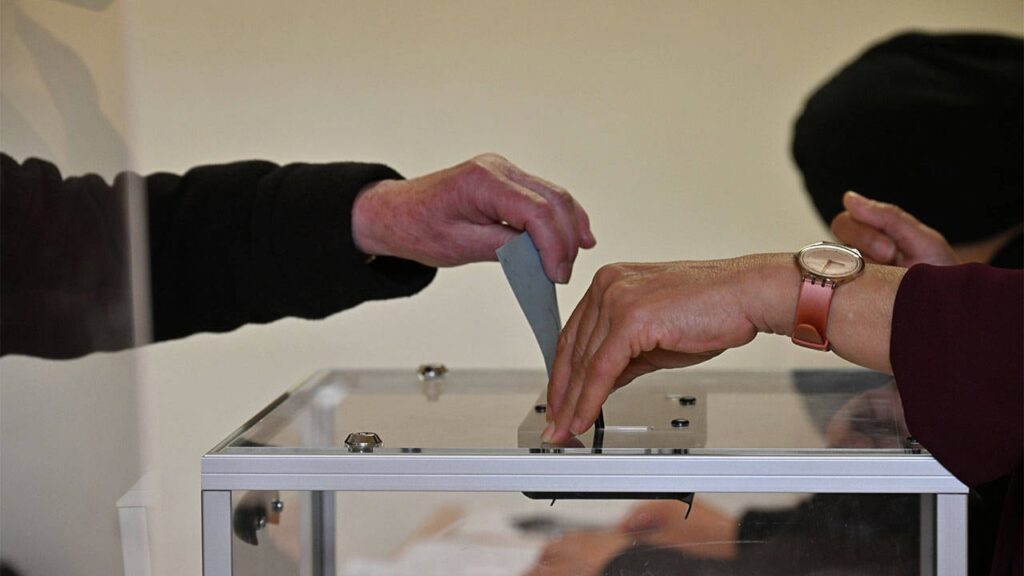Far-right forces gain power in first round of voting: France to hold second round
Security measures stepped up ahead of election results
Meanwhile, in an election where violence against candidates and activists occurred from the first round of voting, there was concern about possible incidents overnight after the results were announced.
Many shopkeepers in Paris and Lyon built barricades in front of their shops and protected their display cases to protect their workplaces from looting.
Voting will begin at 08:00 local time in mainland France and close at 18:00 local time, with voting continuing until 20:00 in major cities, including the capital Paris.
Politicians voted for the second round
The country’s leading politicians also went to vote.
President Macron cast his vote at an electoral centre in the northern city of Touquet.
Prime Minister Gabriel Attal voted at an electoral centre in the city of Vanves, while former prime minister and leader of the Horizon party, part of Macron’s coalition, Edouard Philippe, also voted in Le Havre.
François Hollande, parliamentary candidate for the Socialist Party (PS) and former French President, cast his vote in Tulle, in the Corrézé department.
Alexis Corbière, a member of the Left Invincible France (LFI), voted in the Bagnolet region near Paris, while his party’s Daniel Simonnet voted in Paris.
Republican Party leader Eric Ciotti voted in Nice.
Meanwhile, some politicians, including Finance Minister Bruno Le Maire and Health Minister Frédéric Valletout, called on people to vote in posts on their X accounts.
France to hold early elections
The far-right National Rally (RN) party, which has been steadily increasing its vote share in France’s past three elections, won 31.4% of the vote in the European Parliament (EP) elections on June 9th, doubling that of its closest rival, Macron’s party, Les Rénaissance.
Following the victory of the far-right in the AP election, President Macron dissolved Parliament on the evening of June 9th and decided to hold early elections from June 30th to July 7th.
Although President Macron defended the decision, saying “there should have been a democratic response to the EP election results”, the fact that the country was holding early elections just before the 2024 Paris Olympics, which will run from July 26 to August 11, sparked public concern that it could spark political and social unrest.
Having failed to form an alliance in the last general election, left-wing parties have rapidly coalesced around the anti-far-right “New Popular Front” coalition and announced that they would nominate a single candidate. The New Popular Front coalition includes the country’s main left-wing parties: the PS, the LFI, the French Communist Party (PCF) and the Greens (EELV).
The far-right RN has allied with the centre-right LR party leader Eric Ciotti and some LR members, while the ruling Rônaissance party and its partners MoDem and Horizons have set up the “Together for the Republic” alliance.
In the first round of the election, the far-right coalition came in first with about 33% of the vote, the New Popular Front coalition came in second with 28%, and President Macron’s “All together for the Republic” coalition came in third with 20 percent of the vote.
In the first round of elections, 76 members were elected, of which 39 were from the far-right, 32 from the left-wing coalition, two from Macron’s coalition, and the remaining three were from the centre-right Republicans and other right-wing parties.




